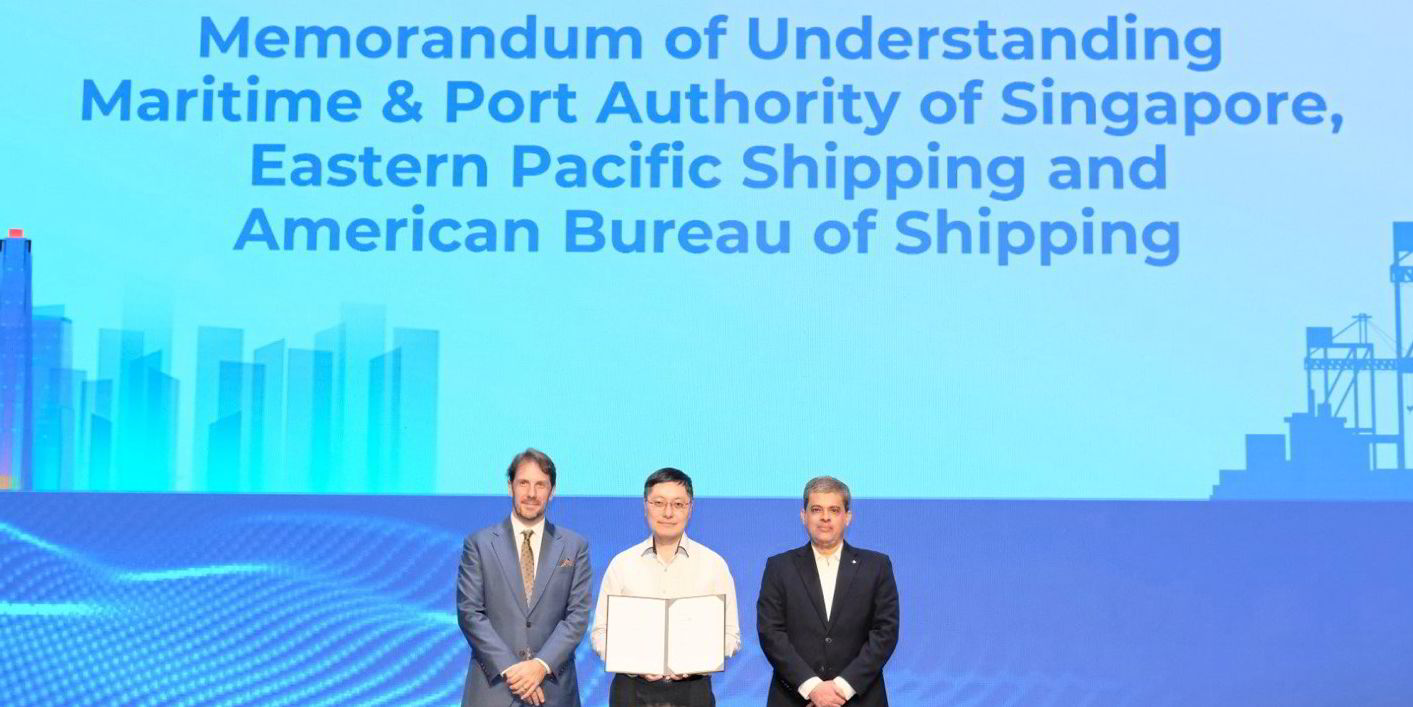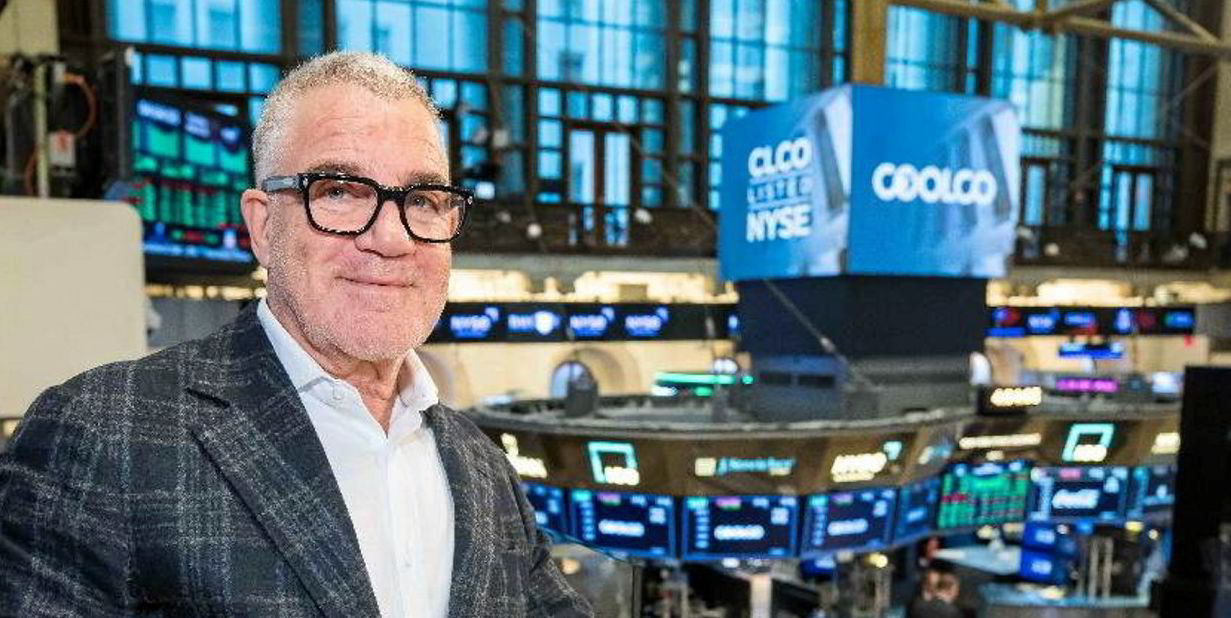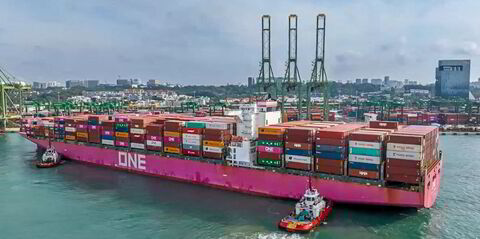Eastern Pacific Shipping plans to place a stable of six ammonia dual-fuel newbuildings under the Singapore Registry of Ships upon delivery.
It has signed memorandums of understanding with the Maritime & Port Authority of Singapore (MPA) and classification societies American Bureau of Shipping and Lloyd’s Register, for the vessels to fly the Singapore flag.
Chief executive Cyril Ducau said: “As optimism grows on the transportation of ammonia following the continued expansion of ammonia production capabilities worldwide, we must recognise fundamentally that crew safety is of paramount importance.
“This collaboration cements our commitment to work with key industry stakeholders to address challenges and strive to lead the safe transportation of zero and near-zero emission fuels like ammonia and its adoption as a marine fuel.
“We look forward to furthering our partnership with MPA and the broader maritime community, to build on necessary training and capacity-building in order to strengthen the safety and environmental aspects so that our collective efforts accelerate decarbonisation of the global shipping industry safely.”
The ships are four newcastlemax bulk carriers under construction at Qingdao Beihai Shipbuilding and two very large ammonia carriers from Hyundai Heavy Industries. They are all set for delivery from 2026.
The collaboration envisaged under the MoUs will include joint capability and capacity-building on ammonia bunkering, seafarer training on management and safety, expertise and knowledge sharing to explore ammonia-related solutions and standards for power generation and bunkering, as well as consideration of zero and near-zero fuel trials.

MPA chief executive Teo Eng Dih said the delivery of Eastern Pacific’s newbuildings would give confidence in the use of ammonia as a marine fuel.
“It will help accelerate efforts to develop the value chain and infrastructure required and the training of the workforce to be ready to safely handle ammonia as a fuel,” he said.
“We look forward to working with [Eastern Pacific] and other like-minded partners on the concrete steps to advance the decarbonisation of international shipping.”



